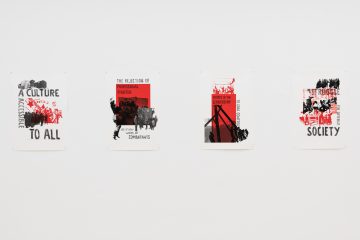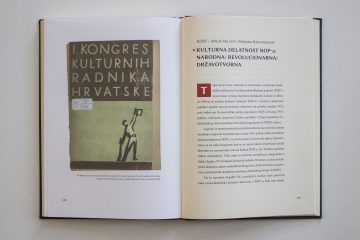Im Mittelpunkt der Sendung im April steht die Analyse queerer Politiken in Kunst und Kultur in Belgrad, Serbien sowie die Genealogie und die historische Verortung dieser Politiken im ehemaligen Jugoslawien und auf transnationaler Ebene. Dabei geht es um lokalspezifische Ausformungen queerer Praktiken, um dissidente Strömungen innerhalb der queeren Bewegung selbst, die sich gegen eine Copy-and-Paste-Übernahme westlicher hegemonialer Queer-Diskurse richten. Die Kulturproduzentin und Theoretikerin Ivana MARJANOVIĆ, gegenwärtig Stipendiatin des Internationalen Fellowship-Programms für Kunst und Theorie im Künstlerhaus Büchsenhausen, hielt im Januar 2012 im Künstlerhaus Büchsenhausen einen Vortrag zu diesem Thema, den wir auf BÜCHS’N’RADIO im April und Mai 2012 in zwei Teilen ausstrahlen. (2. Teil am Mo 7. Mai 2012, 11.06 Uhr MEZ)
Ivana MARJANOVIĆ, *1979 in Jugoslawien, ist freiberufliche Kulturschaffende im Bereich zeitgenössischer Kunst und Theorie, Mitbegründerin der Galerie Kontekst und Mitglied des Kontekst-Kollektivs in Belgrad.













